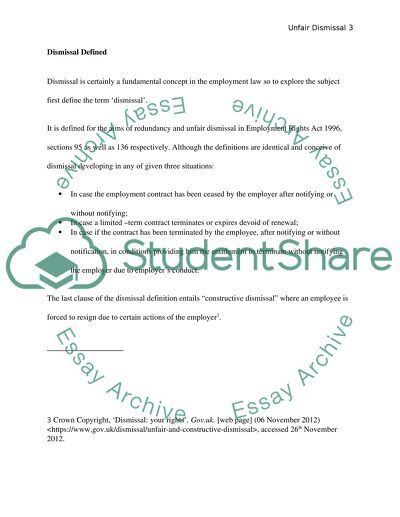Cite this document
(“Unfair Dismissal Essay Example | Topics and Well Written Essays - 2500 words”, n.d.)
Retrieved from https://studentshare.org/law/1462512-unfair-dismissal
Retrieved from https://studentshare.org/law/1462512-unfair-dismissal
(Unfair Dismissal Essay Example | Topics and Well Written Essays - 2500 Words)
https://studentshare.org/law/1462512-unfair-dismissal.
https://studentshare.org/law/1462512-unfair-dismissal.
“Unfair Dismissal Essay Example | Topics and Well Written Essays - 2500 Words”, n.d. https://studentshare.org/law/1462512-unfair-dismissal.


